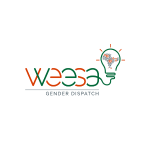

Women’s Economic Empowerment in South Asia (Hosted by SAR GIL)
Tags
- Women’s Groups (20)
- Gender-based Violence (17)
- Implementation Completion Report (ICR) (15)
- Measurement (10)
- Leadership (18)
- Afghanistan (13)
- Social Norms (8)
- Infographics (9)
- Transportation (10)
- Green Transition (6)
- Toolkits (10)
- Pakistan (17)
- Energy (10)
- Jobs (43)
- Self-help Groups (12)
- Infrastructure (7)
- Agriculture (12)
- Social Protection (12)
- Digital Inclusion (16)
- Nepal (7)
- Private Sector (14)
- Care Economy (10)
- Agency and Self-efficacy (4)
- Bhutan (2)
- Sri Lanka (5)
- Podcast (17)
- Operational Documents (20)
- India (23)
- Assets and Resources (14)
- Bangladesh (19)
- Maldives (1)
- Climate Change (18)
- Entrepreneurship (19)
- Financial Inclusion (10)
- Policies and Legislation (14)
- Male Engagement (7)
- Gender Budgeting (7)
- Implementation Completion Report Review (ICRR) (5)
- Education and Skills (22)
Documents
Women’s Advancement in Banking in Emerging South Asian Countries (2024)
This IFC study, one of the first in the region, covers 20 private commercial banks across Bangladesh, Nepal, and Sri Lanka and spotlights opportunities for achieving more equitable work outcomes
Building an Equitable Future? BRAC’s STAR Program and Young Women’s Economic Empowerment in Bangladesh (2023)
While skills development programs can improve labor market outcomes for women in highly gendered societies in the short-term, they tend to dilute over time by strongly-held restrictive norms and practices.
Housing Ownership Gender Differences in Dhaka, Bangladesh (2021)
This paper provides surprising evidence on gender gaps in urban housing ownership. About 1,300 households in a low-income area of Dhaka were randomly selected, with male and female respondents (who
Women’s Empowerment, Gender Budgeting, and Intersection with Climate Change (2023)
Examining the intersection of gender and climate in Bangladesh, this report from the International Monetary Fund (IMF) outlines the macro-criticality of gender equality and identifies important synergies. It suggests that aligning gender-responsive
Deconstructing Cardboard Man: Antagonists, Allies and Advocates in the Quest for Women’s Economic Empowerment in Bangladesh (2021)
This doctoral thesis breaks down Bangladeshi male attitudes toward WEE into three categories – antagonists, allies, and advocates – and seeks to explain how differing positions help or hinder female employment
Can Digital G2P Payments Increase Financial Inclusion and Empower Women? (2023)
Yes, Government-to-People (G2P) payments can empower women to make autonomous decisions about household finances, especially child-related spending. This insight is gleaned from the experiences of women enrolled in the Bangladesh
Moving Up the Ladder: Economic Inclusion of Safety Net Recipients in Bangladesh (2023)
Bangladesh has a successful track record of effective economic inclusion programs led by CSOs. Recognizing that government-implemented initiatives are critical for addressing widespread poverty, this World Bank report examines three
Voices to Choices: Bangladesh's Journey in Women's Economic Empowerment (2019)
Bangladesh has made remarkable strides in reducing gender gaps that prevent growth from being inclusive. Women are improving their rates of tertiary education, control over fertility, and political participation. Bangladeshi
Beyond Girls’ Education: Pathways to Women’s Post-Marital Education in Matlab, Bangladesh (2022)
Despite the commendable progress in girls' school enrollments, Bangladeshi women (like most South Asian women) often find their educational aspirations constrained by marriage. This qualitative study gives an intricate picture
Empowering Women in Agriculture: The Role of the WEAI in Bangladesh (2023)
The Women’s Empowerment in Agriculture Index (WEAI) evaluates women’s empowerment across five domains – production, resources, income, leadership, and time. The tool allows policymakers to monitor progress and compare empowerment